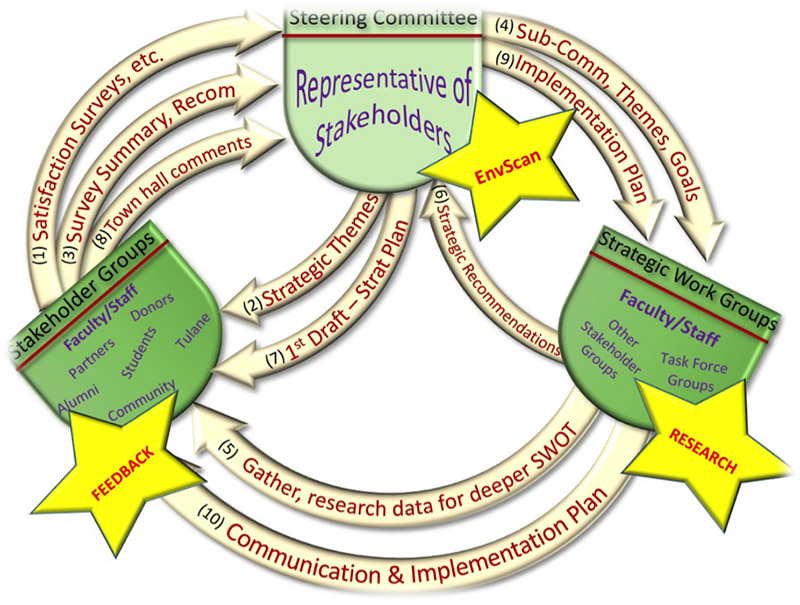In September 2018, the Dean invited SPHTM faculty, staff, and students to participate in several task force groups. These volunteer groups were formed to address needs in areas that require immediate solutions.
- Student Enrollment and Recruitment
- Budget and Finance
- Communications
- Distance Learning
- Dean’s Office Evaluation
- Joint Appointments
- Staff Experience
- Student Experience
Task force members serve as agents of responsibility, and, in this role, are expected to align the group’s work with the School’s mission, vision, and values.
Task force groups are charged to:
- Identify stakeholders in the focus area and analyze stakeholder interests and influence
- Incorporate information analysis into the process, including environmental scans and SWOT analyses
- Define excellence as it relates to the focus area
- Align strategies with SPHTM’s mission, vision, and values;
- Be forward-thinking and creative in developing strategies in this area
- Identify infrastructure for successful and sustainable implementation of strategies in this area: people, resources, policies, procedures, technology, facilities, and campus commitment to environmental sustainability
- Identify opportunities for partnerships that can advance strategies in the focus area
- Consider potential impact of strategies on SPHTM’s visibility and reputation
Task force group deliverables
- Task force work plan
- Summary of stakeholder analysis
- Environmental scan summary
- Proposed discussion questions for stakeholder feedback
Some of these groups will achieve their charge and be dis-mantled at that point. Others will require deeper examination, planning and execution of solutions that may dovetail into the strategic plan.

- Feedback Surveys, other data
- SC Mtg 1: Environmental scan
- Retreat Reports
- SC Mtg 2: SWOT, themes
- Work Group Assignments
- Work Group Reports
- SC Mtg 3; Strat Plan
- Focus groups, webinars, town hall
- C Mtg 4: Implementation Plan
- Implementation (Fall 2019)
